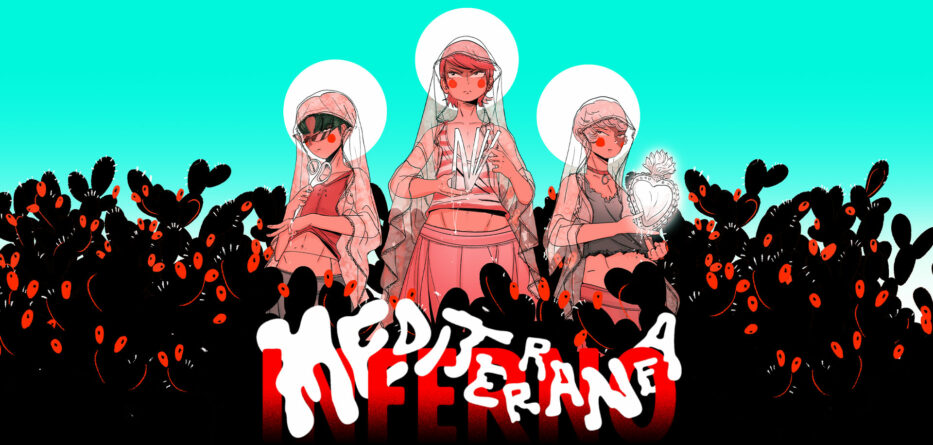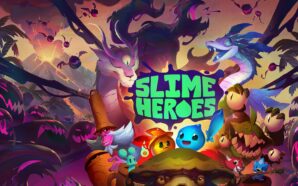Set in Italy post COVID-19, Mediterranea Inferno is a psychedelic visual novel about three Gen Z’s readjusting to reality after the pandemic. Before the viral outbreak, our three protagonists were known as the Sun Guys (which sounds so much more poetic in Italian) and were revered by their peers for their fashion, good looks and extravagant lifestyle. However, the trio grew apart during lockdown, and over the course of those two years, their isolation consumed them.
But now that the pandemic is over, the Sun Guys go on a literal and spiritual vacation to mend their broken relationship.
Story
The Sun Guys were always the life of the party but when the COVID-19 pandemic hit Milan, their lives as they knew it ended. It’s been two years since the Sun Guys were seen together. Now it’s the summer of 2022, and in a last-ditch attempt to return to normal the trio retreat to a small village to reconnect.
While on vacation, the trio are visited by an Angel called Madama. Madama offers them passage to Heaven/Eternal Summer if they can gift her four Fruit of Mirages. Mirages are hallucinations Madama inflicts on the Sun Guys, with a spiritual fruit being the prize at the end of the ordeal. However, she only has enough Mirages for one of them to ascend, so the three boys must decide between themselves which one is worthy of ascension.
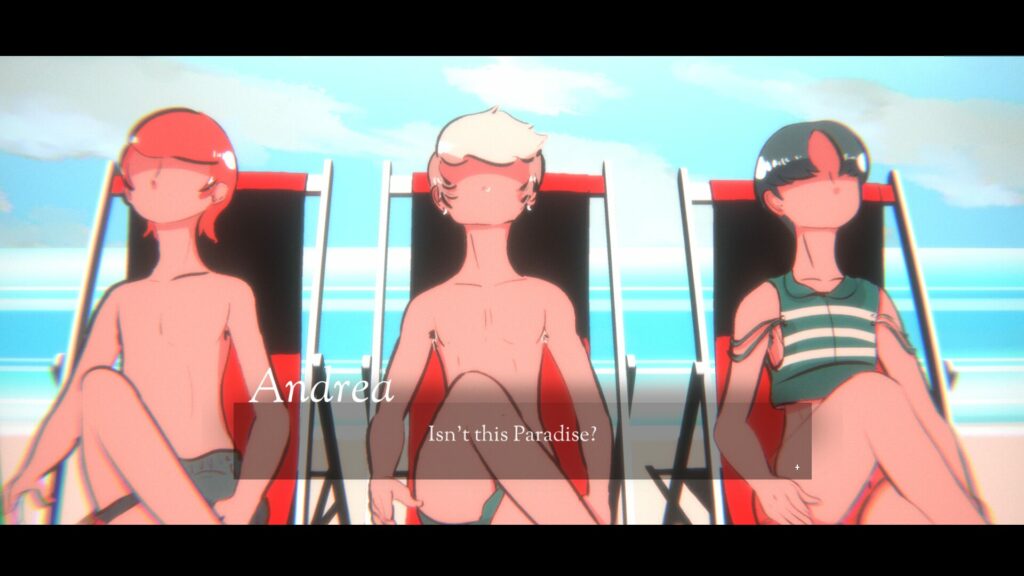
There are five endings to unlock, and you must replay Mediterranea Inferno three times to experience at least four of them. As you already suspect, different endings are achieved based on your actions: will you send Claudio, Mida or Andrea to Heaven? Will you send none at all? And will you be able to reveal Madama’s true intentions?
Gameplay
Mediterranea Inferno comes in two flavours. You have your more traditional gameplay, where you’re essentially reading a picture book – a gorgeous one at that – where you can participate in conversations and dialogue trees. This is where you will see how superficial and socially adept the three boys are.
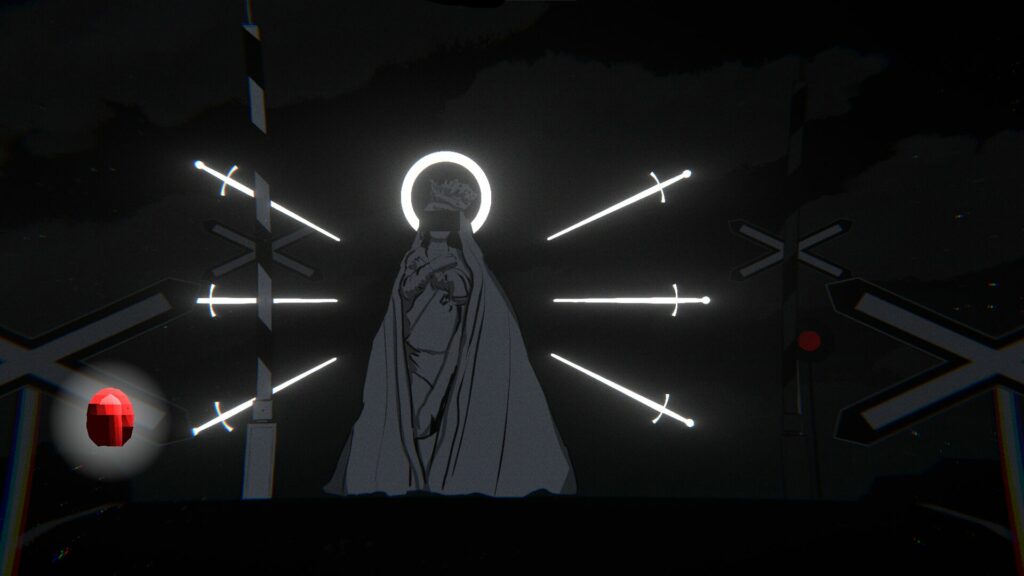
The other half of Mediterranea Inferno is experiencing Mirages, allowing you to see the real thoughts and feelings of our main characters. Mirages are more like pick-your-own-adventures where you explore the Mirage in first-person, investigating various routes and interacting with personifications of the mind to uncover a Fruit of Mirage.
It’s simple but captivating.
Themes
It’s impossible to talk about Mediterranea Inferno without discussing the multitude of themes that the game presents you with, and each character is used to take a deep dive into mental health, politics, futurism, nihilism and existentialism. There’s a lot packed into Mediterranea Inferno, and it’s difficult to touch upon every theme without stepping into spoiler territory, but it’s a miracle that it’s been achieved so successfully. The plot is either metaphorical, delusional internal monologues, or the Guys’ attempts to show each other COVID-19 didn’t horrendously change their lives.
Claudio wants to reinvent himself. He idolises his grandfather, who made his family wealthy, and Claudio hates his entitled father for riding on the coattails of the old man’s legacy. This causes Claudio to cling to the past, allowing the game to explore themes of nostalgia, regret, and the sad reality that his future will never be as good as his father or grandfather had it.
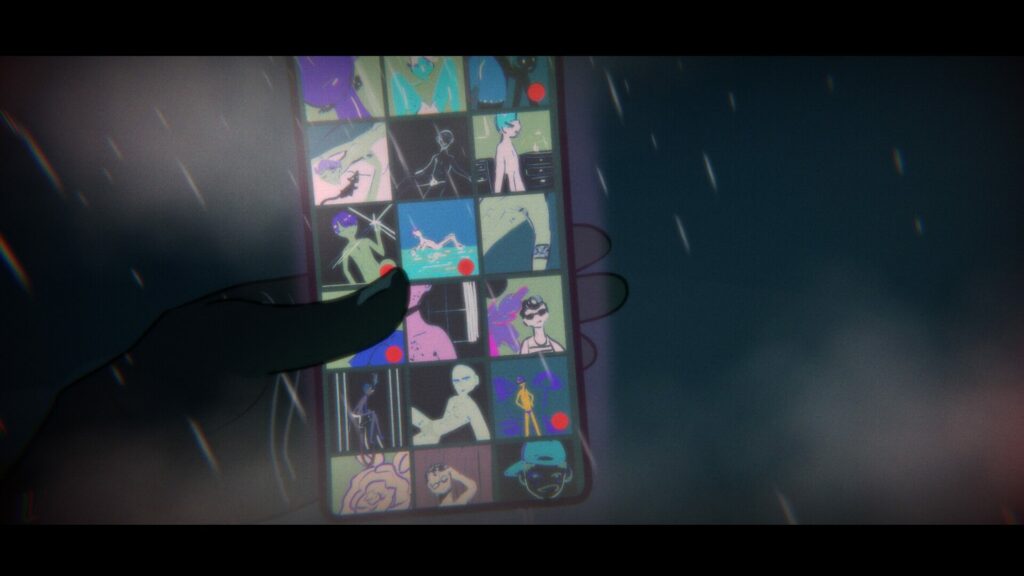
Mida feels like the third wheel of the trio and often feels overlooked by his friends but due to social media, he shot to fame during the pandemic. Although Mida hates his success, he clings to the notion that it will be enough to finally impress his best mates. The game takes advantage of Mida’s plight to examine the role social media has on our perception of ourselves and our perception of others. It takes a brutal stab at how manipulative social media is and how it takes a massive toll on all involved.
Andrea’s story is the least fleshed out but probably the most relatable. Before the pandemic, Andrea led a sexually promiscuous life but not having physical human contact during lockdown has given him social anxiety. Mediterranea Inferno shows us Andrea’s desperation to make human connections, highlighting themes of depression, loneliness and failure.
All of this is set against a backdrop of Italian Catholicism. Most of the symbolism was lost on me but because Mediterranea Inferno is intentionally layered, it always felt relevant. If you’re religiously inclined, I’m sure there’s more to unwrap here.
An Experience Like No Other
As everyone was affected differently by the pandemic, Mediterranea Inferno will speak differently to everyone who plays it. Some people will relate to it more than others, especially if you’re in your 20s and had to isolate alone. Personally, playing Mediterranea Inferno was an insight into how others suffered through it, and I am thankful I had my wife, dog and job throughout the lockdown.
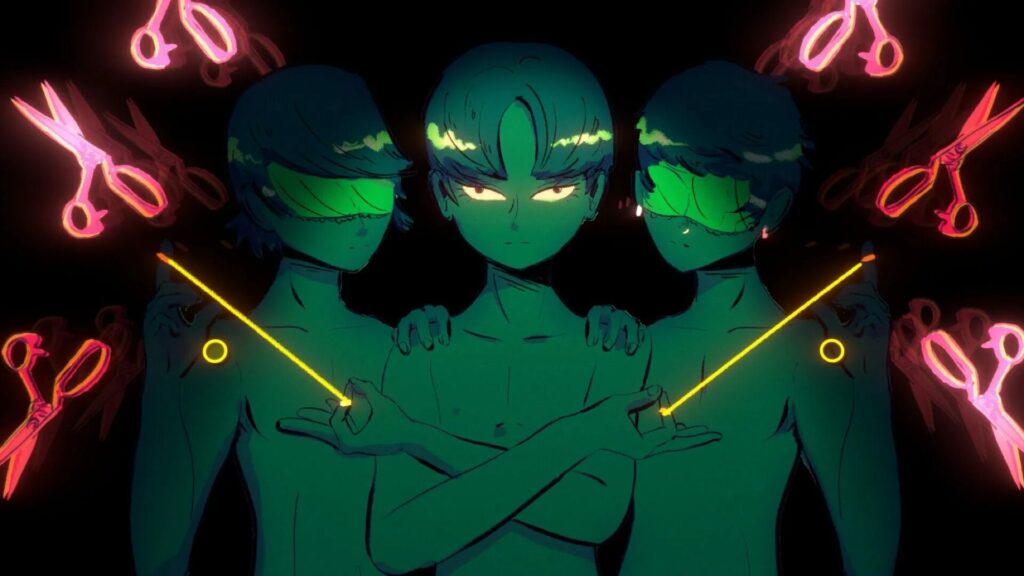
I find it difficult to watch TV shows about COVID-19 because they often focus on the governmental injustices or the delusional escapades of the deniers but Mediterranea Inferno focuses solely on the impact it had on people’s identities and self-worth. Because of this, I highly recommend playing Mediterranea Inferno!
Final Score: 9/10
Should you play it? Yes
Why? Mediterranea Inferno is a modern piece of art. It’s not afraid to peel back the layers of society and tackle perceptions from multiple points of view. Its psychedelic stylings and use of metaphors are never condescending. It also addresses genuine concerns about COVID-19 in a creative, mesmerising, haunting way.
But… If you find mysticism and metaphorical imagery pretentious, you might not be able to get on board with the story. And although Mediterranea Inferno is aware of how flawed the three protagonists are, their constant self-loathing might become tiring for some. This is not a light-hearted tale, and people with a sensitive disposition are unlikely to enjoy Mediterranea Inferno.
Reviewed on Xbox Series S
Developer: Santa Ragione
Publisher: Santa Ragione
Playable on: Xbox Series X/S, PlayStation 4/5, Nintendo Switch, Steam, PC
Released: 5th March 2024




